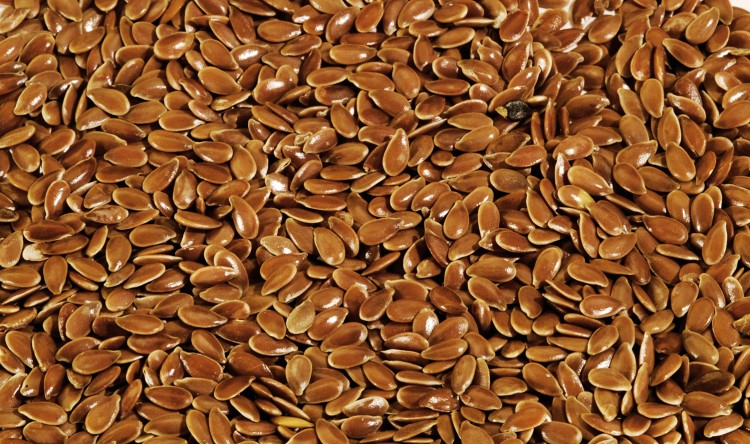It boggles my mind that someone would do this. And probably worse, that they continue to do it.
I mean if you’re in the flax business, is it not ok for me to assume that you know something about your product and the claims your are making? That just maybe, you’ve done some research and at some level understand essential fatty acid metabolism?
I mean thanks to Google all it takes is 0.44 seconds to do a quick search.
Go ahead and give it a try. 0.44 seconds is all it takes for Google to come up with thousands of articles, (many with links to research in peer-reviewed, refereed journals) clearly showing that flax is not a good source of omega 3 fatty acids.
What gives?
Do I have a right to be angry and frustrated? Should you be too?
What am I talking about?
I’d better start from the beginning.
What you need to know to understand why I’m pissed:
- Essential fatty acids (EFAs) are polyunsaturated fats that our bodies need but cannot produce, hence the name ‘essential’. Therefore, they must be consumed through food or supplements.
- Polyunsaturated fatty acids are classified into two subgroups: omega-6 EFAs and omega-3 EFAs.
- Omega-3s play a role in almost every human function including growth and development, digestion, brain and nerve function, immune function, hormone production and regulation, maintenance of skin and bones, regulation of healing and inflammation, heart function, vision, cholesterol levels, and even emotions and behaviour.
- Omega-6 has pro-inflammatory effects, and omega-3 has anti-inflammatory effects.
- The evidence indicates that the proper healthy ratio is 1:1.
- Research indicates that the ratio of omega-6: omega-3 EFAs in the average modern diet is as high as 20:1.
- If your diet is toxic with omega-6 or deficient in omega 3 EFAs it creates a pro-inflammatory state within the body.
- Inflammation is at the root of virtually all chronic illnesses including ADHD, allergies, eczema, asthma, breast cancer, colon cancer, prostate cancer, lowered immunity, heart disease, strokes, diabetes, high blood pressure, depression, fibromyalgia, ulcerative colitis, Crohn’s disease, arthritis, osteoporosis, and Alzheimer’s, painful menstruation, back pain, neck pain, and headaches.
The bottom line.
Being toxic with omega 6 fatty acids and deficient in omega 3 fatty acids is a deadly combination that is shown to increase the chances of illness in people of all ages.
Ok, maybe it gets a little more complicated than that.
There are the two main types of omega-3 fatty acids:
- Long-chain omega-3 fatty acids are EPA (eicosapentaenoic acid) and DHA (docosahexaenoic acid).
- Short-chain omega-3 fatty acids are ALA (alpha-linolenic acid).
***Super important bit of information: ALA must be converted to EPA/DHA before it can be used by the body.***
Where do you find foods rich in omega-3 EFAs?
Wild/pastured/grass-fed, By Design, animal foods. Yep, thats’ right its not only from fish!
When animals eat grass, seeds and insects (which all contain ALA) their digestive processes convert the ALA into omega-3 fatty acids EPA and DHA. So any of the foods you eat from these animals – eggs, dairy, and meat therefore have pre-formed EPA and DHA. Plants don’t.
It is also possible for the human body to create EPA and DHA from the ALA found in plant foods such as flax, hemp and pumpkin seeds and walnuts.
However, research clearly indicates that the conversion of ALA to EPA and DHA is extremely limited. Less than 5% of ALA gets converted to EPA, and less than 0.5% (one-half of one percent) of ALA is converted to DHA.
Are you starting to see what I’m so worked up about?
Here is some of the marketing material published by one of the biggest flax producers:
“Organic flax oil is the richest vegetarian source of omega-3 essential fatty acids (EFA ‘s). Since our bodies cannot produce EFA ‘s, they must be obtained from our diet. Flax seed oil is unique because it contains both omega-3 and omega-6 fatty acids that are necessary for maintaining good health. Our bodies depend on EFA ‘s for normal cell function. Essential fatty acids act as essential building blocks for our bodies. Flax seed oil contains more than twice the amount of omega-3 fatty acids as fish oils.”
Can you see why I’m angry?
How many people have been duped into spending thousands of dollars on this stuff thinking they were fulfilling their omega-3 requirements when research clearly shows thats not the case? More importantly, how has their health been affected if they’ve been deficient in omega EFA the whole time?
Is there harm in consuming flax products? No, you can continue to enjoy them, just don’t expect to meet your omega 3 requirements that way. You’d be far better off putting that money towards some wild fish or fish oil capsules.
So what do you think?
Are health food companies touting the benefits of flax intentionally lying to us?
Is it possible that they haven’t read this research?
Do you think they have a responsibility to research the claims they make about their products?
 Dr. Michael Gibson has committed himself to helping others to live the best life possible. After graduating with a Bachelor of Kinesiology from the University of Western Ontario, he received his Doctor of Chiropractic Degree and Masters of Science in Chiropractic Sports Science from Life University. He is the co-creator of Life By Design, owner of The Wellness Group, and co-owner of CrossFit 613. His passion for empowering families runs deep. After experiencing the loss of his sister due to illness, Michael’s purpose became reaching and teaching as many as possible the foundational principles of an extraordinary life. Since that time he has passionately pursued and been successful in living out his dream. He maintains a busy family chiropractic practice, a full speaking schedule and finds time to implement the principles and practices of Life By Design in his own life.
Dr. Michael Gibson has committed himself to helping others to live the best life possible. After graduating with a Bachelor of Kinesiology from the University of Western Ontario, he received his Doctor of Chiropractic Degree and Masters of Science in Chiropractic Sports Science from Life University. He is the co-creator of Life By Design, owner of The Wellness Group, and co-owner of CrossFit 613. His passion for empowering families runs deep. After experiencing the loss of his sister due to illness, Michael’s purpose became reaching and teaching as many as possible the foundational principles of an extraordinary life. Since that time he has passionately pursued and been successful in living out his dream. He maintains a busy family chiropractic practice, a full speaking schedule and finds time to implement the principles and practices of Life By Design in his own life.

[…] and if you’re looking for a vegetarian option, stay away from flax. Check out this post where we uncover the lies behind […]